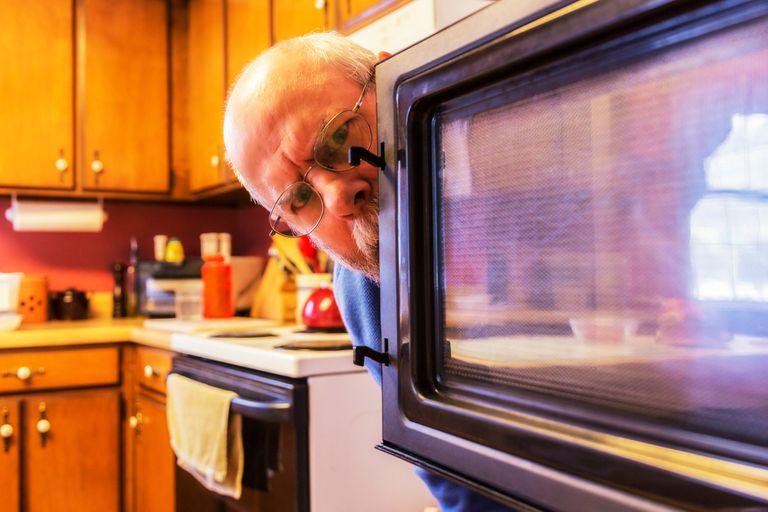Nowadays, smart home devices are becoming more and more popular among households. In the future, around 30 million U.S. households will add smart home technology to their house (Mordorintelligence, 2019). Furthermore, the growth rates of smart home markets in North America and Europe are prospected to be high. Tech giants like Google and Amazon have brought different types of smart home devices on the market, that are most often voice-controlled devices. Examples are Google Home and Amazon Echo (Alexa). These devices are driven by IoT (Internet of Things), in which the smart home device is interconnected with all kinds of other devices in your home. These days, smart home devices are connected to your TV, music system, thermostat, doorbells, and in the near future with your fridge, oven, and kettle (Luimstra, 2019). These will be all controllable with simple questions and commands given by the customer.
Obviously, the implementation of a smart home device could give the customer various advantages. At first, the customer will be given more convenience in and outside the house. Several devices in your household will be more easily being controlled, often with small voice commands. Whether you want to know the best route to your destination when leaving your house, or you want to arrive in a house that’s heated up, or you want to know what movie to watch after the serie you’re almost done with: it’s all possible with a smart home device (Marr, 2019). Secondly, since many voice-assisted home devices are connected with your energy regulator, smart home devices are an ideal way to save on your future energy expenses. According to your preferences, preprogrammed temperatures and lighting schedules can be implemented, which are also easy to modify after. Lastly, smart home devices tend to increase the safety of your house. Smart doorbells are able to livestream the person that’s at your door, which gives a customer more information about people with possible bad intentions (Luimstra, 2019).
However, the safety of smart home devices (and mainly the voice-controlled ones) has been criticised lately. All information that smart home devices need are saved in the cloud (Marr, 2019). While this is convenient, it also creates an easy point for abuse of your personal information. Voice-assistant devices are known to be easily activated by a so-called ‘wake word’, like the word ‘Alexa’ for Amazon’s voice assistant (Karch, 2019). If activated, all information is recorded and saved in the cloud, and is therefore also accessible for hackers or other wrongdoers. Furthermore, the smart home devices have voices that are increasingly sounding like a normal human voice (Weinberger, 2019). Since we emotionally attach value to voices, this could become a problem when a voice-controlled smart home device will talk to outsiders or family people. So, while the positive aspects of smart home devices are obviously present, its negative threats related to security and trust into these systems may not be neglected. Will voice-controlled smart home devices become almost 100% safe? Are we able to distinguish between voices of smart home devices and the voice of one of our relatives? These question are ripe for future discussion.
References:
Karch, M. (2019). Is Your Smart Device Spying on You? How Can You Stop It?. [online] Lifewire. Available at: https://www.lifewire.com/is-your-smart-device-spying-on-you-4141166 [Accessed 15 Oct. 2019].
Luimstra, J. (2019). De slimme IoT-huiskamer: groot goed, of potentiële spionage?. [online] Sprout. Available at: https://www.sprout.nl/artikel/technologie/de-slimme-iot-huiskamer-groot-goed-potentiele-spionage [Accessed 15 Oct. 2019].
Marr, B. (2019). The 7 Most Dangerous Technology Trends In 2020 Everyone Should Know About. [online] Forbes.com. Available at: https://www.forbes.com/sites/bernardmarr/2019/09/23/the-7-most-dangerous-technology-trends-in-2020-everyone-should-know-about/#16a928687780 [Accessed 15 Oct. 2019].
Mordorintelligence. (2019). Smart Homes Market | Growth, Trends, and Forecast (2019 – 2024). [online] Available at: https://www.mordorintelligence.com/industry-reports/global-smart-homes-market-industry [Accessed 15 Oct. 2019].
Weinberger, D. (2019). Can We Trust Machines that Sound Too Much Like Us?. [online] Harvard Business Review. Available at: https://hbr.org/2019/05/can-we-trust-machines-that-sound-too-much-like-us [Accessed 15 Oct. 2019].



